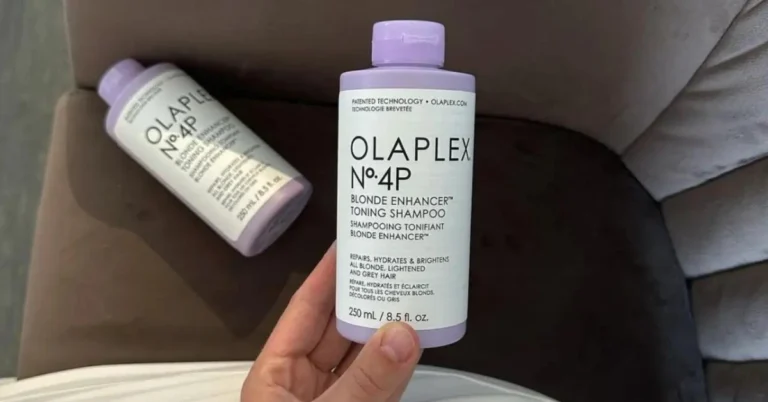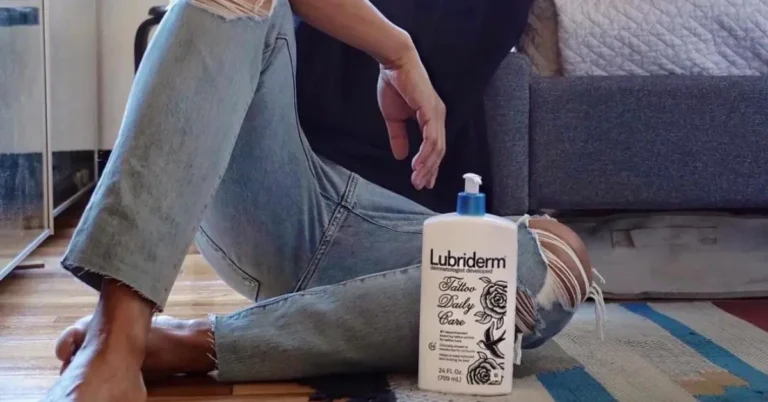Have you ever caught yourself straining your eyes to read the minuscule print on your shampoo or beauty products, attempting to make sense of the mysterious terms “parabens” and “sulfates”? I totally get it, my dear friend, and the frustration is truly tangible. However, worry not, because today we embark on a quest for understanding.
In this article, I make you a promise: I’ll decode the mysteries of parabens and sulfates, demystify their purpose, and unravel the controversies surrounding them. No more head-scratching, no more ingredient anxiety. You’ll not only understand what these terms mean but also gain valuable insights into why they’re present in your cherished personal care products.
The potential risks and benefits will be laid bare, empowering you to make informed choices for your skin and hair. So, let’s dive in together because clarity awaits, and it’s time to master the language of labels!
Table of Contents
What are Parabens and Sulfates?
Parabens are a type of preservative that has been used in cosmetics and personal care products for decades. They are used to prevent the growth of bacteria and mold, which can cause products to spoil. However, parabens have also been linked to health concerns such as hormone disruption and allergic reactions.
Sulfates, on the other hand, are a type of surfactant that is used to create lather and remove dirt and oil from the skin and hair. While sulfates are generally considered safe, they can be harsh and irritating for some people.
With so much conflicting information out there, it can be difficult to know what to believe when it comes to parabens and sulfates. In this article, I will provide an overview of these ingredients, their potential risks, and what alternatives may be available.
Whether you’re someone who is concerned about the safety of your personal care products or simply curious about what goes into them, this article will provide you with the information you need to make informed decisions.
Understanding Parabens and Sulfates

As someone who is interested in personal care products, you may have come across the terms “parabens” and “sulfates” on the labels of various shampoos, conditioners, and lotions. But what are parabens and sulfates, and why should you care?
Parabens are a type of preservative that has been used in personal care products since the 1920s. They help to prevent bacteria and fungus from growing in products like shampoos, toothpaste, moisturizers, and mascara.
However, there has been some concern that parabens may be linked to health issues like breast cancer and reproductive problems. While the research is inconclusive, many people choose to avoid products that contain parabens as a precaution.
Sulfates, on the other hand, are a type of surfactant that is commonly used in shampoos and other cleansing products to help remove dirt and oil from the hair and skin. However, sulfates can also be harsh and drying and may cause irritation or allergic reactions in some people. If you have sensitive skin, you may want to look for products that are sulfate-free.
When it comes to personal care products, it’s important to be informed about the ingredients that are in them. While parabens and sulfates are not necessarily “bad” ingredients, they may not be the best choice for everyone.
By understanding what parabens and sulfates are and how they work, you can make more informed decisions about the products you use on your body.
The Role of Parabens in Products

As someone who cares about the ingredients in their personal care products, it’s important to understand what parabens are and why they’re used. Parabens are a type of preservative that is commonly found in cosmetics, skincare, and hair care products. They’re added to these products to prevent the growth of harmful bacteria and mold, which can cause the product to spoil and become unsafe to use.
My Advice: If you’re not sure whether a product contains parabens, check the ingredient list. Parabens are usually listed near the end of the list, and their names often start with “methyl,” “ethyl,” “propyl,” or “butyl.”
While parabens are effective preservatives, there has been some concern about their safety. Some studies have suggested that parabens may disrupt the body’s hormonal balance and contribute to the development of breast cancer. However, the research on this topic is still inconclusive, and regulatory agencies such as the FDA have deemed parabens safe for use in cosmetics at low levels.
If you’re concerned about the potential risks of parabens, there are alternatives available. Many companies now offer paraben-free products, which use other types of preservatives to keep their products fresh. You can also look for products that are labeled “preservative-free,” although these may have a shorter shelf life and need to be used more quickly.
The Role of Sulfates in Products

Sulfates are a type of cleansing agent commonly used in personal care products such as shampoos, body washes, and facial cleansers. They are responsible for creating the lather that many people associate with a thorough cleaning experience. However, sulfates can also have some negative effects on the skin and hair.
Sulfates work by binding to dirt and oil, allowing them to be easily rinsed away from the skin or hair. While this can be effective at removing impurities, it can also strip away natural oils that help to keep the skin and hair healthy. This can lead to dryness, irritation, and even damage over time.
One of the main concerns with sulfates is their potential to cause skin irritation. For people with sensitive skin, using products that contain sulfates can lead to redness, itching, and other uncomfortable symptoms. Additionally, sulfates can be particularly harsh on color-treated hair, causing the color to fade more quickly and leaving hair feeling dry and brittle.
Pro Tip: If you’re looking for a sulfate-free alternative, try using a cleansing oil or cream. These products are designed to gently remove impurities without stripping away natural oils, making them a great choice for people with dry or sensitive skin.
It’s important to note that not all sulfates are created equal. Some types, such as sodium lauryl sulfate (SLS), are more harsh and potentially irritating than others.
Look for products that use milder sulfate alternatives, such as sodium lauryl sulfoacetate (SLSA) or sodium cocoyl isethionate (SCI), if you’re concerned about the potential negative effects of sulfates.
Potential Health Concerns of Parabens

As mentioned earlier, parabens are commonly used as preservatives in cosmetics, pharmaceuticals, foods, and beverages. However, there are some potential health concerns associated with their use.
One of the primary concerns is that parabens can disrupt hormones in the body. Studies have shown that parabens can mimic estrogen in the body and interfere with the endocrine system. This can lead to a variety of health problems, including reproductive issues and an increased risk of breast cancer.
Another concern is that parabens can cause skin irritation. This is especially true for people with sensitive skin or those who are allergic to parabens. It’s important to note that not everyone will experience skin irritation from parabens, but it’s still something to be aware of.
Finally, there is some evidence to suggest that parabens may be harmful to the environment. When parabens are washed down the drain, they can end up in rivers, lakes, and oceans. This can hurt aquatic life and ecosystems.
Remember: If you’re concerned about the potential health risks associated with parabens, look for products that are labeled “paraben-free.” There are many safe and effective alternatives available, so you don’t have to sacrifice quality for the sake of your health.
Potential Health Concerns of Sulfates

Sulfates are commonly found in many personal care products such as shampoos, soaps, and toothpaste. They are used to create a lather that helps to remove dirt and oil from the skin and hair. However, sulfates can have potential health concerns that you should be aware of.
One of the largest side effects of sulfates is the irritation they can cause to the eyes, skin, or scalp. This can lead to dryness, redness, and itching. If you have sensitive skin or suffer from eczema or psoriasis, using products with sulfates can make these conditions worse.
Sulfates can also strip the natural oils from your hair and scalp, leading to dry, brittle hair. This can cause hair breakage and split ends. If you color your hair, sulfates can cause the color to fade faster, leading to more frequent trips to the salon.
My Advice: If you’re looking for a natural alternative to sulfate-based products, try using products with ingredients like coconut oil, aloe vera, or tea tree oil. These natural ingredients are gentle on the skin and hair and can help to soothe irritation and dryness.
In addition to these concerns, sulfates have been linked to potential health risks. Some studies have shown that sulfates can be absorbed into the body and accumulate in the liver, kidneys, and brain. This can lead to long-term health effects.
To avoid these potential health concerns, try switching to sulfate-free products. Look for shampoos, soaps, and toothpaste that are labeled as sulfate-free. These products are gentle on the skin and hair and can help to reduce irritation and dryness.
Alternatives to Parabens and Sulfates

As I mentioned earlier, parabens and sulfates are commonly found in beauty and personal care products. Fortunately, there are alternatives to these potentially harmful chemicals that can still effectively clean and preserve products without compromising your health.
One alternative to parabens is phenoxyethanol. This is a widely used preservative that is considered to be much safer than parabens. It is commonly used in skincare products and has been shown to be effective in preventing the growth of bacteria and fungi.
Another alternative to sulfates is Decyl Glucoside. This is a gentle surfactant that is derived from coconut and corn. It is an effective cleanser that is often used in baby products and other gentle cleansers.
In addition to these alternatives, many other natural and organic ingredients can be used in place of parabens and sulfates. For example, essential oils can be used to preserve products and provide a natural scent. Beeswax can also be used as a natural emulsifier, and aloe vera can be used to soothe and moisturize the skin.
How to Identify Parabens and Sulfates on Product Labels
As someone who cares about their health and well-being, it’s important to know what ingredients are in your products. Parabens and sulfates are two common ingredients found in many personal care products, but they can have potentially harmful effects on your body.
So, how can you identify parabens and sulfates on product labels? Here are a few tips:
- Look for the names: Parabens are usually easy to identify by their name, such as methylparaben, propylparaben, butylparaben, or ethylparaben. Sulfates are often listed as sodium lauryl sulfate (SLS) or sodium laureth sulfate (SLES).
- Check the ingredients list: Parabens and sulfates are often listed towards the end of the ingredients list. If you see them listed early on, it may be a sign that the product contains a high concentration of these ingredients.
- Look for “paraben-free” or “sulfate-free” labels: Many companies are now marketing their products as “paraben-free” or “sulfate-free” to appeal to consumers who are looking for safer, more natural alternatives.
By taking a few extra seconds to read product labels and understand what ingredients are in the products you use, you can make more informed decisions about what you put on your body. And if you’re looking for safer, more natural alternatives to products that contain parabens and sulfates, there are plenty of options available.
What are Parabens and Sulfates? A Recap

As a beauty enthusiast, I have always been curious about the ingredients in my favorite products. Two common ingredients that often come up in discussions are parabens and sulfates. But what are they, exactly?
Parabens are a type of preservative that is commonly used in cosmetics and personal care products. They are added to prevent the growth of bacteria and mold, which can cause products to spoil and potentially harm the user. Parabens are often listed on product labels as methylparaben, ethylparaben, propylparaben, butylparaben, or isobutylparaben.
Sulfates, on the other hand, are a type of detergent that is commonly used in shampoos, body washes, and facial cleansers. They work by creating a lather that helps to remove dirt and oil from the skin and hair. The most common sulfates found in personal care products are sodium lauryl sulfate (SLS) and sodium laureth sulfate (SLES).
While both parabens and sulfates have been deemed safe for use in cosmetics by regulatory agencies, some people choose to avoid them due to concerns about their potential health effects. Studies have suggested that parabens may disrupt hormone function and contribute to breast cancer, while sulfates may irritate the skin and scalp.
FAQ

Why are sulfates and parabens harmful?
Sulfates can strip natural oils, leading to dryness and irritation, while parabens have been linked to potential health concerns like endocrine disruption and skin irritation. While research is ongoing, many opt to avoid these ingredients in personal care products as a precautionary measure.
What are examples of parabens?
Common examples of parabens include methylparaben, ethylparaben, propylparaben, and butylparaben. These synthetic preservatives are often used in cosmetics and personal care products to extend their shelf life.
What is another name for paraben?
Parabens may also be listed under alternative names, such as “Methyl Hydroxy Benzoate,” “Benzoic Acid, 4-Hydroxy-, Methyl Ester,” or “Methyl-4-Hydroxybenzoate.” These variations can appear in ingredient lists of cosmetics and personal care products.
Are parabens banned in Europe?
Parabens are not entirely banned in Europe, but their use is restricted. The European Commission has set maximum concentration limits for certain parabens in cosmetic products to ensure their safety. Some specific parabens, like butylparaben and propylparaben, are banned in leave-on products for children under three years old.
How do I know if something is paraben free?
To determine if a product is paraben-free, carefully examine its ingredient list on the packaging or the manufacturer’s website. Look for specific mentions like “paraben-free” or check for the absence of common paraben compounds like methylparaben, ethylparaben, propylparaben, or butylparaben in the ingredients.
If you liked this blog article about the question: What are Parabens and Sulfates? don’t forget to leave us a comment down below to tell us about your experience.





